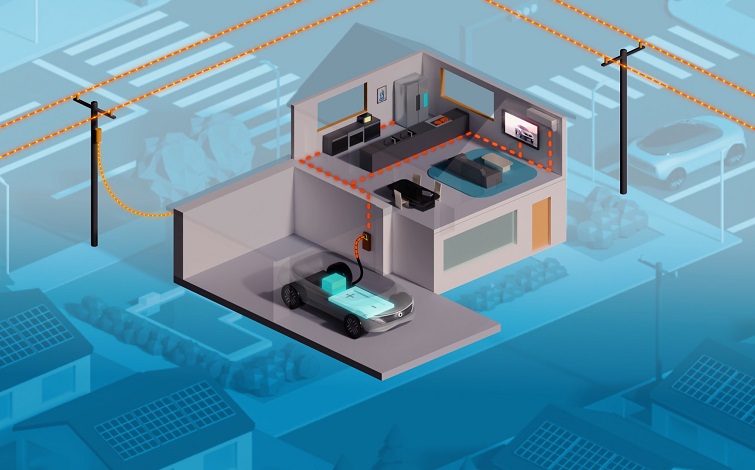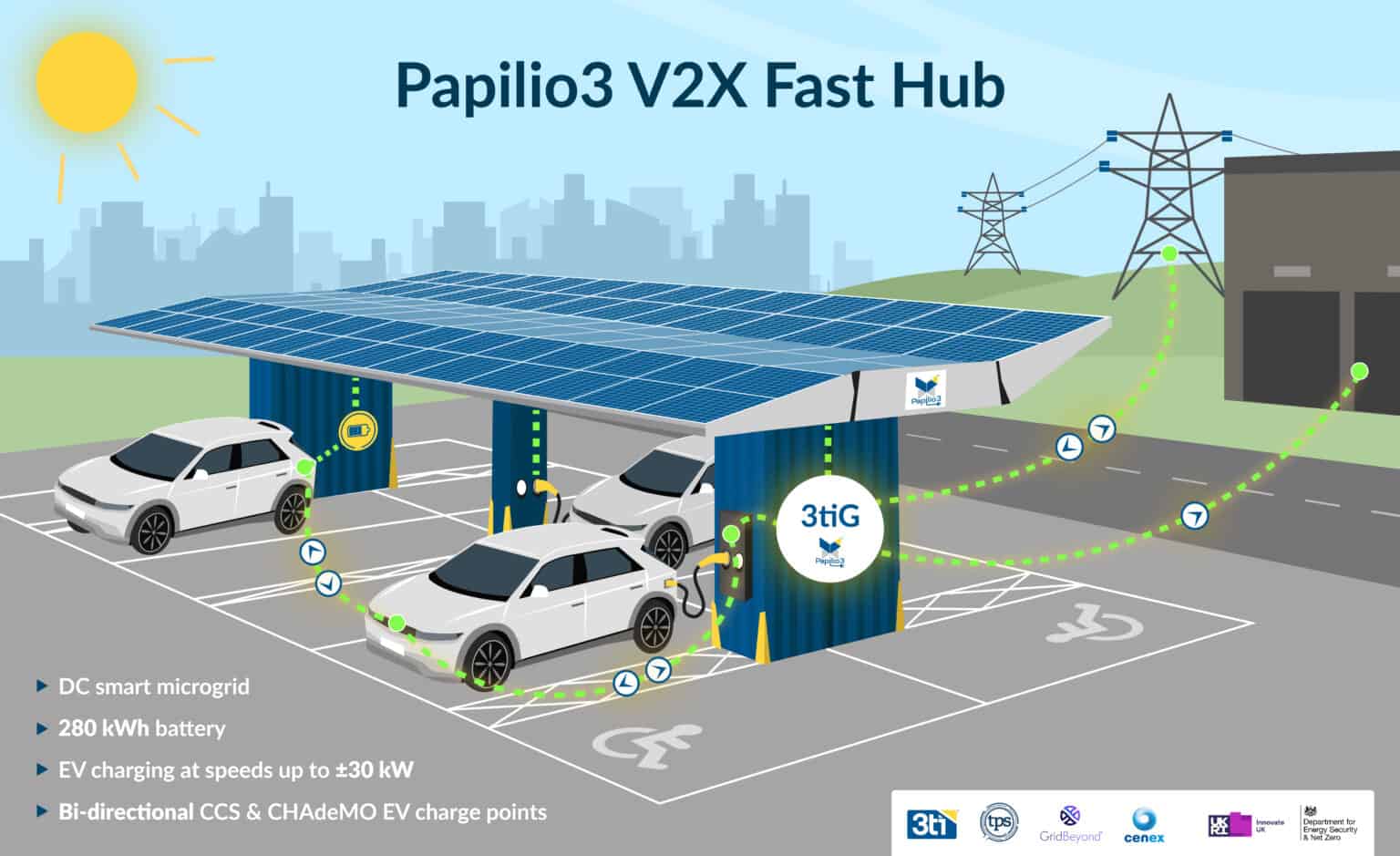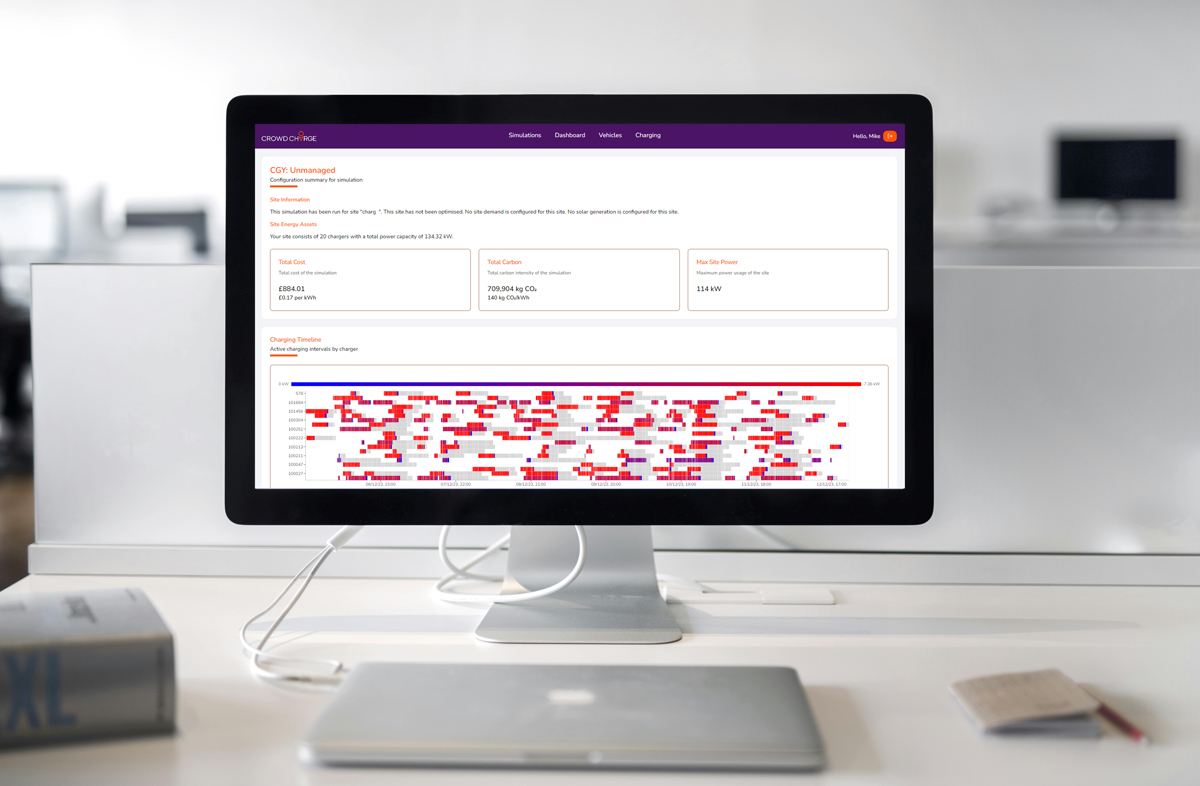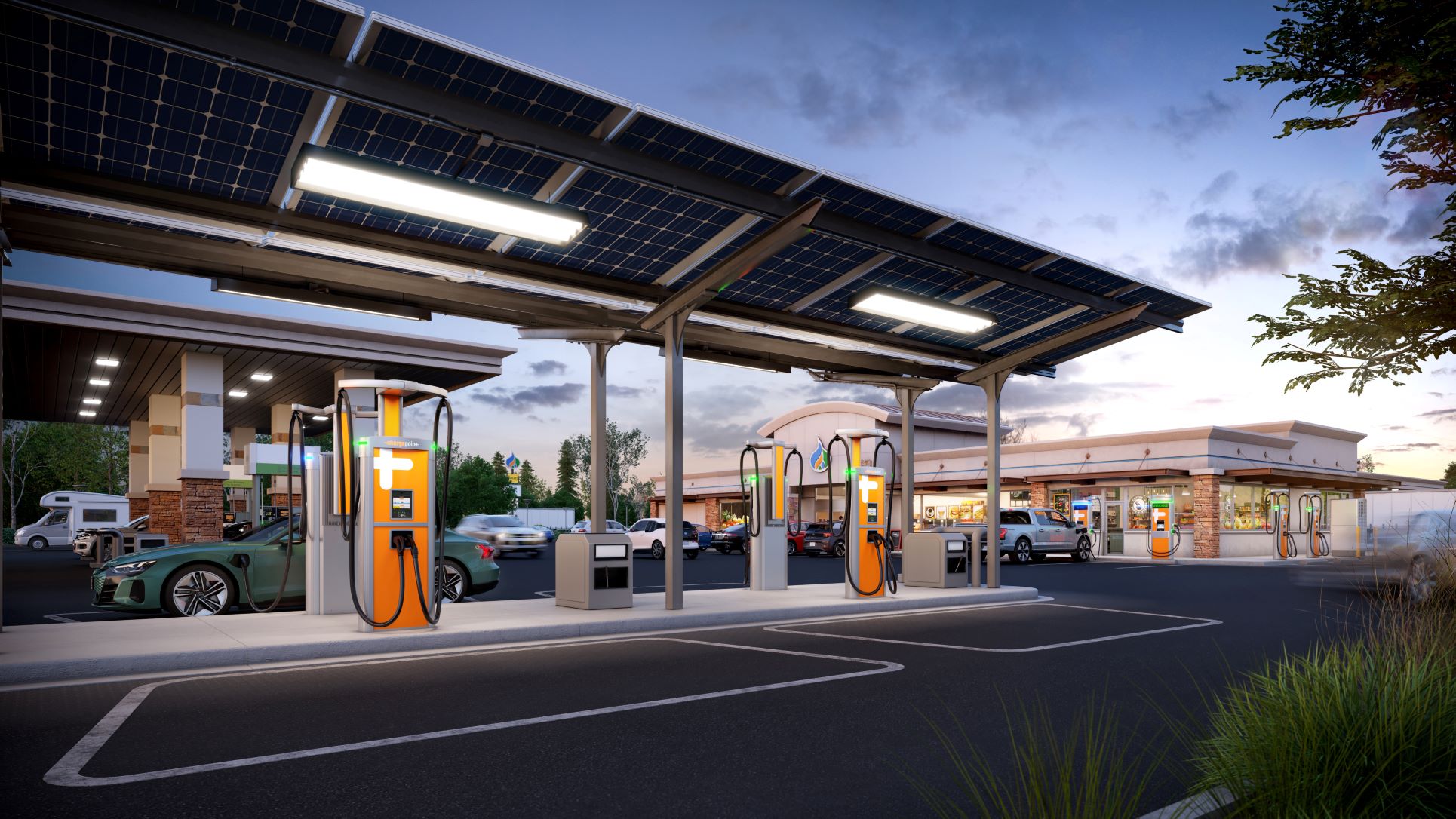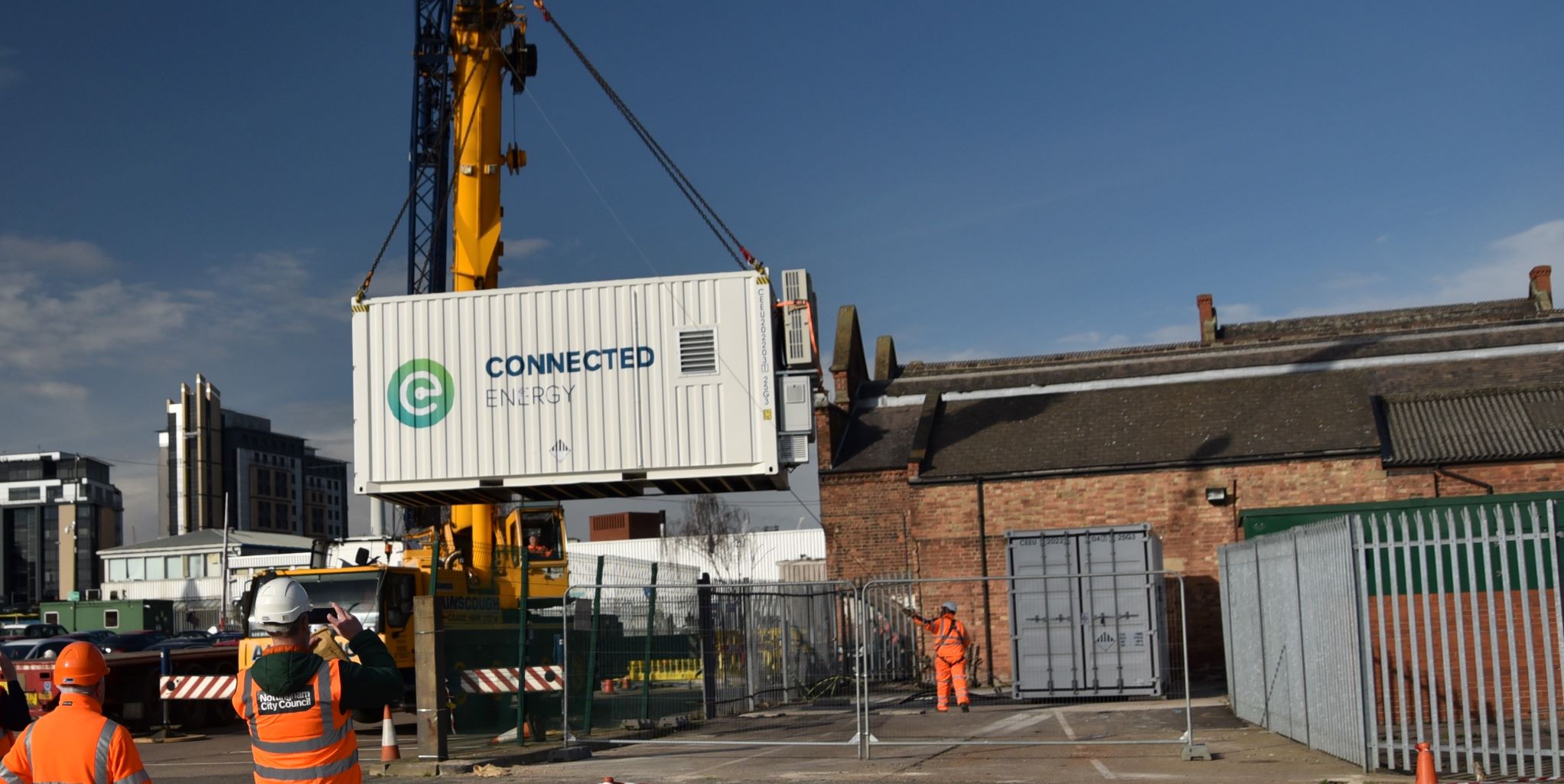
As one of the four city pilots in the Interreg NW Europe CleanMobilEnergy (CME) project, Nottingham City Council has committed to converting its Eastcroft Depot ready for the needs of a zero-carbon future.
This involves upgrading the electricity supply connection to the site, making it fit for an electrified strategy, and systems to support conversion of its operational vehicles to zero emission alternatives.
The innovative technologies include 40 bi-directional vehicle-to-grid (V2G) chargers and 40 V2G capable fleet vehicles including cars, vans, trucks, road sweepers and refuse collection vehicles. It also includes a battery energy storage system (BESS), developed by Connected Energy, using re-purposed end-of-life EV batteries providing 600 kW/ 720 kWh of additional onsite storage capacity and flexibility.
The installation will provide 138 kW of solar photovoltaic generation and a range of different smart charging systems matched to the demands of the different types of vehicles.
These systems will be controlled using intelligent energy management systems optimised to minimise carbon intensity and maximise economic value. The overall system is monitored and further optimised with recommendations using the RE-Move tool developed by the CME consortium.
“This is an exciting milestone for CleanMobileEnergy and Nottingham City Council,” said Matt Knight, hardware trials and data integration lead. “We’re excited to see the impact of these technologies and hope to see more councils install similar systems in the future.”
“By developing an integrated Energy Management System called RE-Move, assets within the energy system are monitored and controlled where possible,” explained Jorden van der Hoogt, strategy and innovation lead. “At peak moments, the demand is being reduced, or surplus of (renewable) energy is stored in battery storage systems.
“Controlling all assets from a higher level has the potential to maximise the use of renewable energy and reduce the need for expensive grid reinforcements,” van der Hoogt added.
Eastcroft Depot serves as a commercial hub for Nottingham City Council’s waste, energy, highways and infrastructure operations, including where 66% of the city’s household waste is turned into energy for 5,000 homes. Much of the city council’s fleet is based at the depot, and significant efforts have been made to decarbonise the fleet of bin lorries, sweepers, vans and more. Currently, over 50% of the council’s fleet is powered by electricity. Nottingham Electric Vehicle Services (NEVS) is also based at Eastcroft Depot which maintains the council’s own electric vehicle fleet as well as offering MOT and servicing to the growing number of EVs appearing on Nottingham’s roads.
Commenting on the arrival of the two Connect Energy BESS units, Councillor Sally Longford, portfolio holder for energy, environment and waste services, said, “It’s fantastic to see the batteries installed at Eastcroft Depot for the CleanMobilEnergy project. Our aim with this project is to make the most of renewable energy that we’re generating in Nottingham, reducing carbon emissions and costs associated with our fleet.
“We are leading the way when it comes to the green agenda, and innovative projects like these are key to helping us to achieve our target of being the first carbon neutral city in the UK by 2028.”
Wayne Bexton, director of environment and sustainability, said that in installation of the batteries concludes the infrastructure side of a remarkable project that enables energy from solar panels to be stored and sold back into the grid at the most lucrative times of day. “As a demonstrator microgrid, it means we are less reliant on energy from the national grid to power our electric vehicles, helping us save money, save carbon and work towards carbon neutrality. I am extremely proud of the team working on this and thankful to our funders Interreg NW Europe and Innovate UK,” Bexton added.




